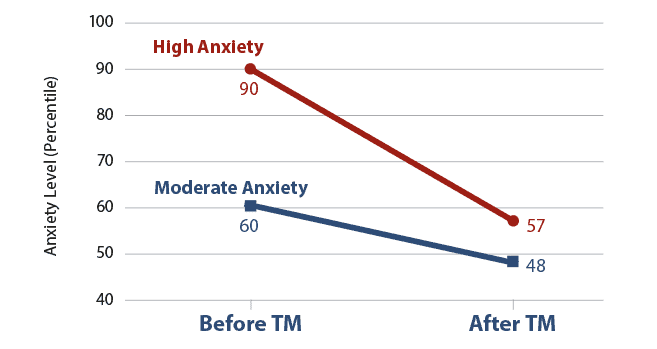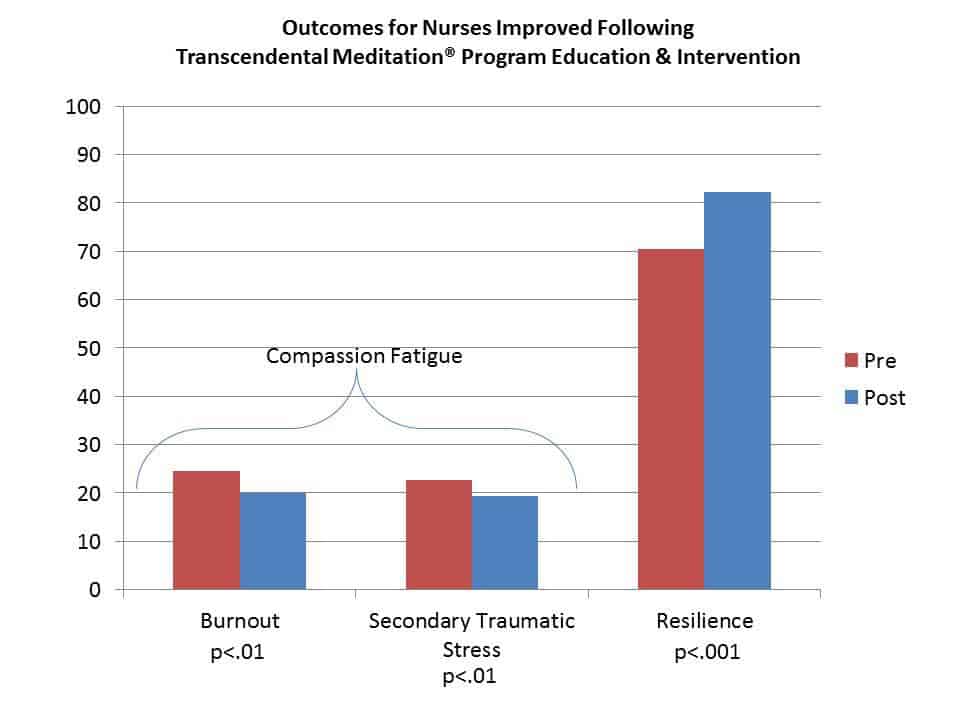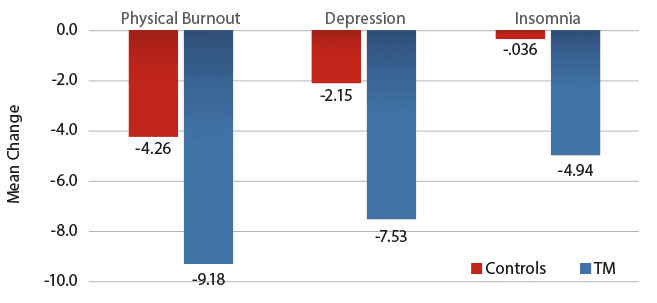Heal the Healers Now
A New Initiative to Bring Meditation
to Nurses and Personal Support Workers
Affected by the Pandemic
The Canadian Women for Wellness Initiative is partnering with the David Lynch Foundation in the US to introduce “Heal the Healers Now,” a new initiative to bring the stress-reducing Transcendental Meditation® technique to nurses and personal care workers whose jobs have been impacted by the coronavirus pandemic.

Even before the pandemic, the Canadian Nurses Association acknowledged that nurse fatigue and burnout were high, primarily due to the heavy workloads and ever-increasing cognitive, psychosocial and physical work demands. [1]
The coronavirus pandemic has brought additional stress with higher staff shortages, longer, more gruelling shifts and a lack of necessary personal protective equipment. Healthcare workers are feeling strained to the breaking point with many expressing concerns that the pandemic is negatively impacting their mental health.
These times demand well-documented, innovative approaches to address this crisis. Transcendental Meditation is an evidence-based, non-pharmacological intervention for this public health crisis.
An Introduction to Transcendental Meditation
Transcendental Meditation is an easy-to-learn, enjoyable-to-practice mental technique for deep relaxation and stress-reduction. It has been successfully offered in hospitals and clinics, medical schools, as well as to police, firefighters, veterans, substance abuse centres, prisons, and other settings across North America.
TM practice produces a unique neurophysiological state that combines deep metabolic rest with heightened mental alertness. This state of deep relaxation, which researchers have termed “restful alertness,” is a potent antidote to stress. Over 400 peer-reviewed published studies on TM have documented improvements in a wide variety of stress-related disorders, as well as significant improvements in cognitive function and overall health and well-being. The National Institutes of Health and the Department of Defense in the US have awarded nearly $30 million in grant support for research on TM.

Reduced Anxiety
A meta-analysis has shown that TM reduces anxiety and PTSD to a significantly greater degree than other forms of meditation or relaxation. Studies have also shown that TM produces clinically meaningful results often within a few days to two weeks.
Reference: Orme-Johnson DW, Barnes V. Effects of the Transcendental Meditation Technique on Trait Anxiety: a Meta-Analysis of Randomized Controlled Trials. Journal of Alternative and Complementary Medicine 20 (2013): 330-341.
Decreased Burnout and Increased Resilience
In a pilot study of 27 hospital-based nurses, quantitative measures were assessed at baseline and four months after instruction in the TM technique. Post-test results showed statistically significant improvements in resilience and the three subscales of the compassion fatigue questionnaire: nurse burnout, secondary traumatic stress and compassion satisfaction.
Reference: Bonamer J, Aquino-Russell C. Transcendental Meditation Reduces Compassion Fatigue and Improves Resilience for Nurses. Journal for Nurses in Professional Development (2019); 35(2);93-97.


Reduced Physical Burnout
A four-month randomized controlled trial with faculty physicians at Loyola Stritch Medical School, Chicago, showed the TM technique brought about a decrease of burnout, depression and insomnia.
Reference: Loiselle M, et al. Effect of Transcendental Meditation on Physician Burnout, Depression, and Insomnia: A Randomized Controlled Study. In preparation for publication, 2020.
Reduction in Perceived Stress and Mood Disorders
Two months of regular TM practise significantly reduced perceived stress and mood disturbance in family caregivers, including reductions in anxiety, depression, anger, confusion, and fatigue, and increase in spiritual well-being.
Reference: Nidich S et al. Stress reduction with the Transcendental Meditation program in caregivers: A pilot study. International Archives of Nursing and Health Care Perspectives (2015): 1(11): 1-4.


Comments from Nurses
I have been practising TM since the end of May 2016. I feel I am getting what I finally have always wanted, which is a tool that will allow me to be peaceful and in the present moment. I am able to communicate better with my children. My daughter says I am more joyful. I feel a deep relaxation after the TM meditations. I have glimpses of being in the moment, blissful through the day and I feel happier inside my body. Since TM, I have not had heart palpitations which I was suffering from on a daily and weekly basis.
The joy of nursing is in being able to give and help others and in being an active and flexible team member. The job demands a lot and stress can pile up on our minds, hearts and bodies. The benefits I received from practising Transcendental Meditation throughout most of my nursing career are many. Whether on a break at work, or at home after a shift, TM practice would restore my fatigued mind easily to a feeling of calm and my body to a deep level of relaxation, tensions dissolving away. Feeling restored, I was once again able to function from a level of fullness rather than feeling ‘used-up’.
I experience beneficial effects from my regular TM practice daily, even after more than 33 years. My morning meditation allows me to start the day with greater clarity of mind effortlessly. At the end of the afternoon, the practice helps me release the stress accumulated during the day and feel rested, giving me renewed energy to start the evening.
